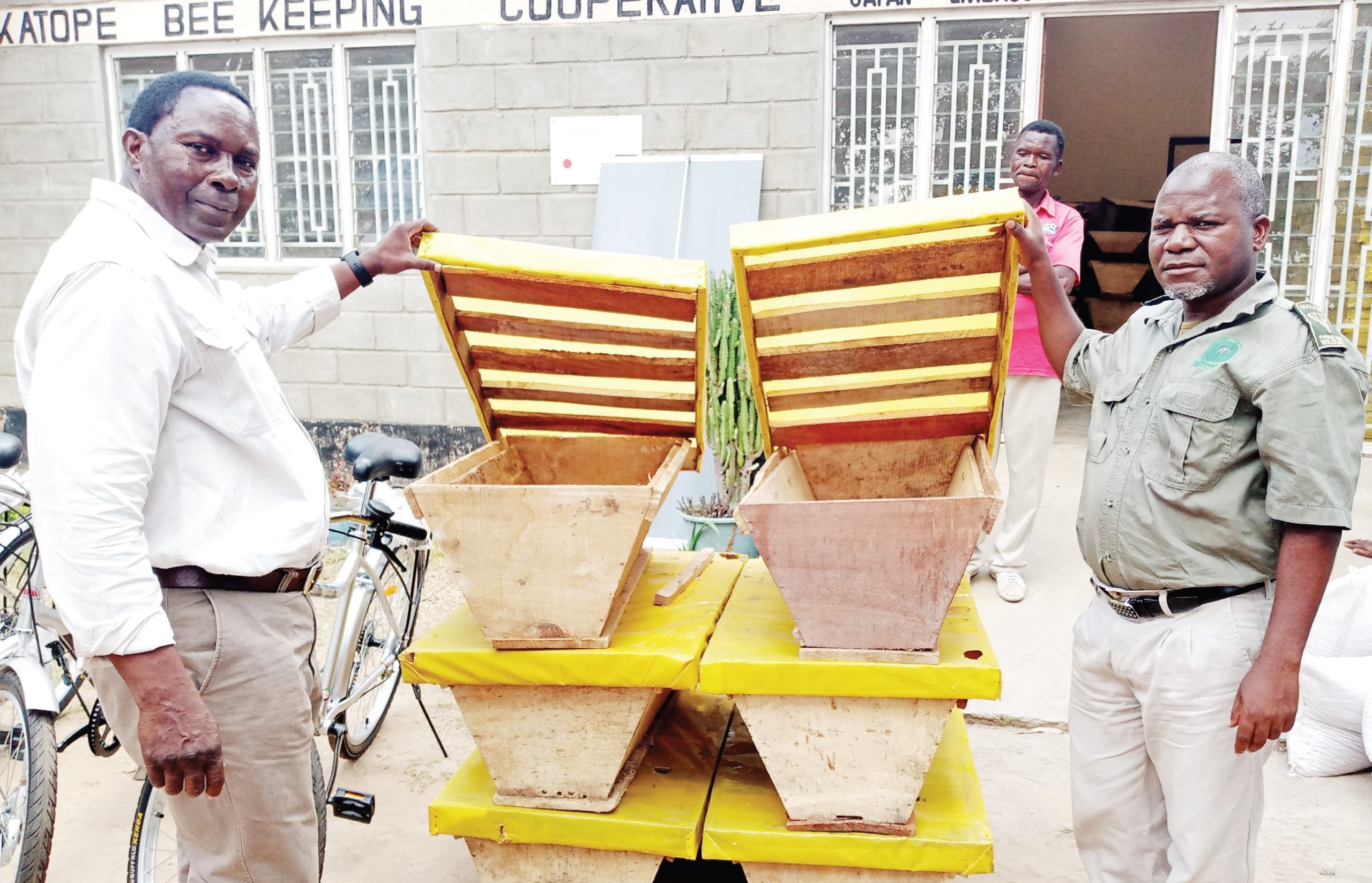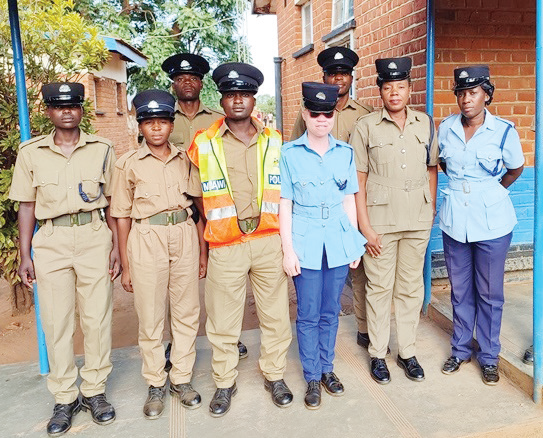How government is killing irrigation agriculture
In this second of the four part series on irrigation law, our news analyst EPHRAIM NYONDO looks at how government continues to kill the steam of irrigation in the country because of its failure to put in place institutional provisions of the 2001 Irrigation Act?
With the continued bite of climate change, irrigation agriculture, experts note, is the immediate and abundantly available alternative to Malawi’s predominantly failing rain-fed agriculture?

Dr Hankie Uluko—senior lecturer of agricultural technology at Lilongwe University of Agriculture and Natural Resources (Luanar)—underlines that irrigation is “surely a climate smart technology that can help Malawi adapt to climate change impacts”.
But does government really consider that?
If you read most of their documents, of course, you would believe they do. In fact, the 2001 Irrigation Act provides good grounds for analysis.
In 2001, Parliament enacted the Act which provided the legal and institutional framework for the development of irrigation in Malawi.
The document provides for remedies for the challenges in irrigation development, but it also provides for the establishment of institutions like the Irrigation Board and the Irrigation Fund—in the process, it helps in the operationalisation of the Irrigation Policy.
However, 15 years since, the Act is still dormant as all the institutional provisions are not in place. The failure, experts argue, has helped a lot in the killing of irrigation in the country.
National Irrigation Board
The most important body to be established by the Act is the Irrigation Board as it is the one mandated to oversee most of the provisions in the Act in liaison with the minister responsible for irrigation, says Tamani Nkhono-Mvula, national director of Civil Society Agricultural Network (Cisanet).
Uluko agrees with Nkhono-Mvula saying “all the provisions in the Act were meant to streamline irrigation design, operations and maintenance such that there are operational standards in these areas”.
“In its absence, anyone can come and promote what they think is an appropriate irrigation design. The board was meant to give direction to anyone venturing into irrigation on priorities whether it is the designs, environmental protection and water management issues,” says Uluko.
And Nkhono-Mvula, in agreement, goes to the specifics.
“Currently, the country does not have up-to-date standards for irrigation and this has lead to the development of substandard irrigation facilities.
“In 2007, we started the process of developing the standards for irrigation in Malawi, but that process never got completed because, among other things, of the absence of the board which is supposed to approve such standards. Without proper standards it is a free for all type of situation as anyone can do the designs as they so wish,” he explains.
Nkhono-Mvula further says that with the new developments in irrigation farming there may be a need to review the Act, but the provision of the current Act gives the board—which does not exist—the powers to consider and advise on proposals for the enactment of legislation that may affect irrigation and drainage.
The problem we may have is that anybody or person trying to do this may be doing that illegally, he notes.
The board is also supposed to act as a forum for information sharing as well deigning strategies and modalities for information sharing.
Currently, according to Nkhono-Mvula, the Department of Irrigation may be performing such duties, but the Act does not mandate it to do so unless done in liaison with the board and with the low funding the department gets, there has been a very big gap on this.
“For instance, we have just launched the Irrigation Master Plan which is more like an overall strategy for irrigation development in Malawi. The question is how many people know about the plan? We believe that it would have been the responsibility of the Board to make sure that the strategies for popularisation have been put in place and that the document is known to local and international potential investors in the irrigation sector in Malawi,” he explains.
Another important duty of the board is also to exercise authority affecting registration of irrigation consultants in Malawi.
Section 39 (1) says: “After the expiration of six months from the date of engagement coming into operation of this Act, no person shall be engaged as an irrigation consultant unless he is registered under this Act.”
However, due to the absence of the board, no irrigation consultant is registered in accordance to the provisions of this Act, notes Nkhono-Mvula.
“In other words, all individuals exercising their duties as irrigation consultants are doing that illegally. In fact, it is also difficult to monitor the quality of work that the so-called irrigation engineers and consultants are doing because there is no legally instituted body to perform that role,” he says.
Additionally, notes Dr Uluko, registration of irrigation consultants is good for ethics as well as ensuring sustainability of irrigation schemes as only qualified professionals would have been engaged. “This is also the practice in the construction industry, law and medical fields,” he says.
The Irrigation Fund
The fund is another institution established by the Act to serve as a resources mobilisation instrument for irrigation development in Malawi.
Nkhono-Mvula rightly notes that funding is one of the biggest challenges in irrigation development.
“We have lots of graduate engineers who may want to go into irrigation, but funding is the biggest hindrance,” he says.
He adds that if government, for instance, had been making an annual investment of K5 billion into the fund since the Act came into being, we would have made at least invested K75 billion in irrigation development.
“Some of the development partners and other international bodies could have been able to invest into the fund. Government must, therefore, not be the first to complain of funding when it is failing to put in place mechanisms to mobilise resources for irrigation development.
“The fund, also being revolving, could have kept on growing. One may ask as to why potential investors don’t just go to commercial banks and obtain loans. Our assertion is that the Irrigation Fund will provide conditions that are relevant to farming as opposed to most commercial loans that are not agriculture friendly. The board could have popularised the fund and by now we could not have been talking of the challenges of food as we have today,” he says.
Surely, as Dr Uluko sums it all, the fund would have been handy in the investments associated with irrigation such as input loans, machinery, processing equipment and storage facilities.
The larger picture
Policy specialist at Chancellor College, Professor Happy Kayuni, notes that the Irrigation Act scenario just exemplifies one of the key issues that have kept Malawi down: the failure to implement its development plans, policies and laws.
Various studies have shown how neighbouring countries silently sneak in, admire our development plans and successfully implement them in their countries, he says.
What Kayuni says dovetails with an observation Blessings Chinsinga—Chancellor College Professor of development studies—makes that: “If Malawi only implemented 20 percent of its development plans, it could have been a developed country by today.”
Way forward
Dr Uluko does not mince words: “Without the board and the fund, we are disorganised and we may not reap the benefits of irrigation which includes food and income security”.
He adds that there have been several irrigation intervention projects in Malawi which, if coordinated, the country would have been talking of great strides in irrigation.
“The Irrigation Act should be implemented in relation to recent efforts such as the Irrigation Master Plan. A common approach will help irrigation contribute to food and income security in Malawi,” he explains.
On his part, Nkhono-Mvula wants government to walk the talk on irrigation development.
“Our country is facing lots of challenges as a result to climate change and our hope for a sustained food security lies in irrigation. We have the potential but this can only be exploited if we put in place proper frameworks for irrigation development. Projects such as the Green Belt Initiative will not achieve their full potential if such types of frameworks are not in place. Our local investors may not participate in the Green Belt if the fund is not there. We have lots of recent graduate irrigation engineers who can’t use their knowledge due to lack of funding. That’s the whole purpose we needed the fund,” he says. n





